
The Enchanting Algiers Bay: Algeria's Coastal Gem
Algiers Bay, nestled along the Mediterranean coast of Algeria, is a blend of natural beauty and historical charm. This picturesque bay is surrounded by the vibrant city of Algiers, known for its white-washed buildings that reflect the rich cultural tapestry of the region. From the azure waters of the Mediterranean to the historical Casbah, a UNESCO World Heritage site, Algiers Bay offers a unique experience for every traveler. Stroll along the scenic waterfront promenade, where you can enjoy breathtaking views of the bay and the bustling activity of the port. The bay is a popular spot for both locals and tourists to relax, take in the maritime atmosphere, and savor delicious Algerian cuisine at the numerous seaside cafes and restaurants. For history enthusiasts, the nearby Casbah of Algiers provides a deep dive into the past with its narrow winding streets, ancient mosques, and traditional houses. The blend of French colonial and Moorish architecture offers a glimpse into the diverse influences that have shaped the city over centuries. Whether you're exploring the historical landmarks or simply soaking up the sun by the sea, Algiers Bay is a destination that captivates the heart and soul.
Local tips in Algiers Bay
- Visit the Casbah early in the morning to avoid crowds and experience its true charm.
- Try local seafood dishes at the waterfront restaurants for an authentic taste of Algerian cuisine.
- Wear comfortable shoes, as exploring the Casbah involves walking through narrow and uneven streets.
- Learn a few basic French or Arabic phrases to enhance your interactions with locals.
- Check the weather forecast and plan your visit during the cooler months for a more pleasant experience.
The Enchanting Algiers Bay: Algeria's Coastal Gem
Algiers Bay, nestled along the Mediterranean coast of Algeria, is a blend of natural beauty and historical charm. This picturesque bay is surrounded by the vibrant city of Algiers, known for its white-washed buildings that reflect the rich cultural tapestry of the region. From the azure waters of the Mediterranean to the historical Casbah, a UNESCO World Heritage site, Algiers Bay offers a unique experience for every traveler. Stroll along the scenic waterfront promenade, where you can enjoy breathtaking views of the bay and the bustling activity of the port. The bay is a popular spot for both locals and tourists to relax, take in the maritime atmosphere, and savor delicious Algerian cuisine at the numerous seaside cafes and restaurants. For history enthusiasts, the nearby Casbah of Algiers provides a deep dive into the past with its narrow winding streets, ancient mosques, and traditional houses. The blend of French colonial and Moorish architecture offers a glimpse into the diverse influences that have shaped the city over centuries. Whether you're exploring the historical landmarks or simply soaking up the sun by the sea, Algiers Bay is a destination that captivates the heart and soul.
When is the best time to go to Algiers Bay?
Iconic landmarks you can’t miss
Martyrs Memorial
A towering monument in Algiers honoring the heroes of Algeria's war for independence, offering panoramic views and historical insights.

Botanical Garden Hamma
Discover a world of flora at Algiers' historic Hamma Botanical Garden, a tranquil oasis since 1832. Explore diverse plant collections and serene landscapes.
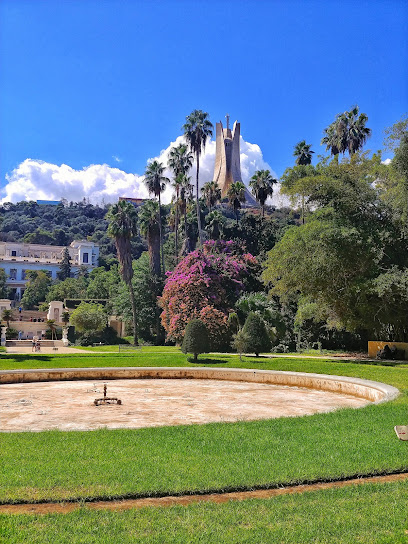
Martyrs' Square
Explore Martyrs' Square in Algiers: a historic landmark honoring Algeria's independence with stunning architecture and cultural vibrancy.
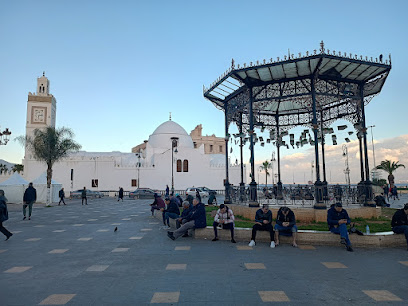
Church of Notre Dame of Africa
Discover Algiers' iconic basilica, a stunning blend of architectural styles and a symbol of religious coexistence overlooking the Mediterranean Sea.
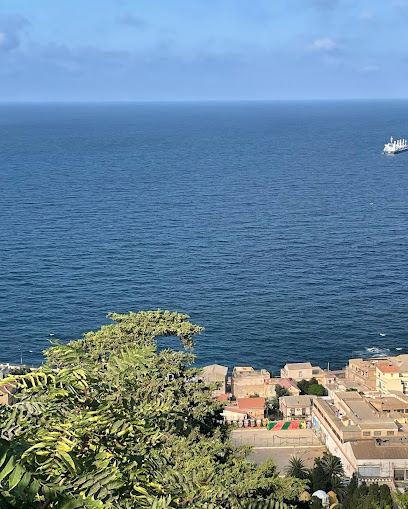
Riad Al Fath
Discover Algeria's rich heritage at Riad Al Fath in Algiers, a stunning display of traditional architecture and serene gardens.
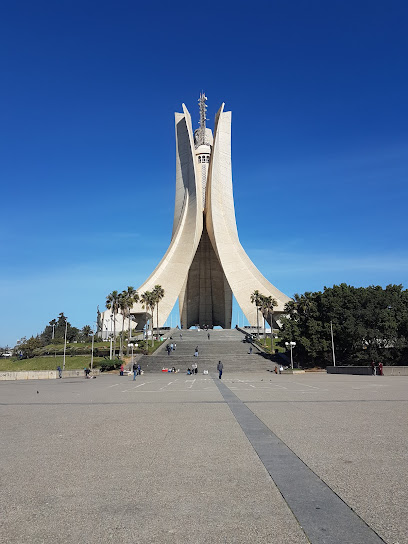
Sacred Heart Cathedral
Discover Algiers' Sacred Heart Cathedral: a blend of modern architecture, rich history, and serene spiritual ambiance in the heart of the city.
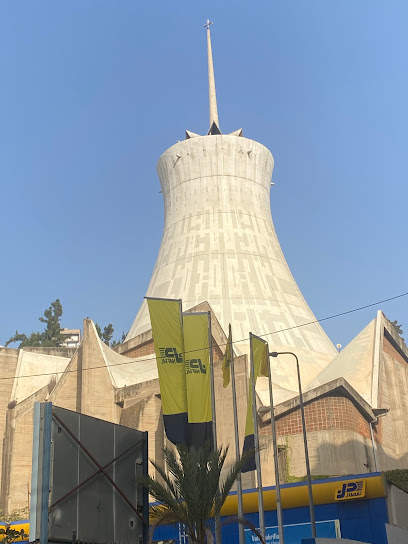
The Great Mosque
Discover the Great Mosque of Algiers, a historic landmark showcasing Almoravid architecture in the heart of the Casbah.
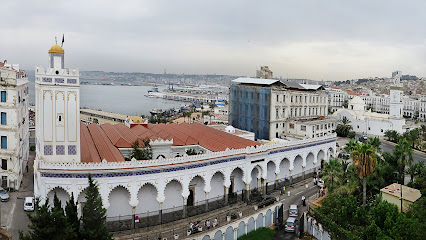
National Museum of Arts and Popular Traditions
Discover Algeria's rich cultural heritage through traditional arts and crafts at this museum in Algiers' historic Casbah.
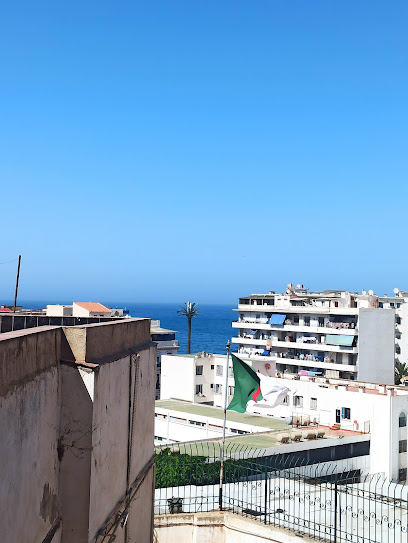
Dar Mustapha Pacha
Explore Dar Mustapha Pacha in Algiers, a stunningly preserved Ottoman-era palace and museum in the heart of the UNESCO-listed Casbah.
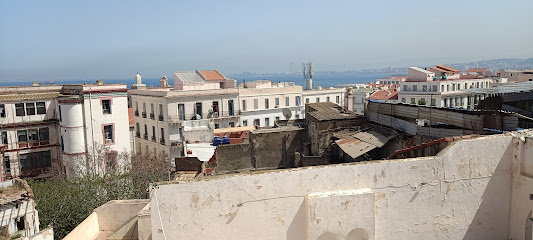
Museum of Modern Art of Algiers
Discover modern and contemporary art in a stunning neo-Moorish setting at the heart of Algiers' cultural scene.
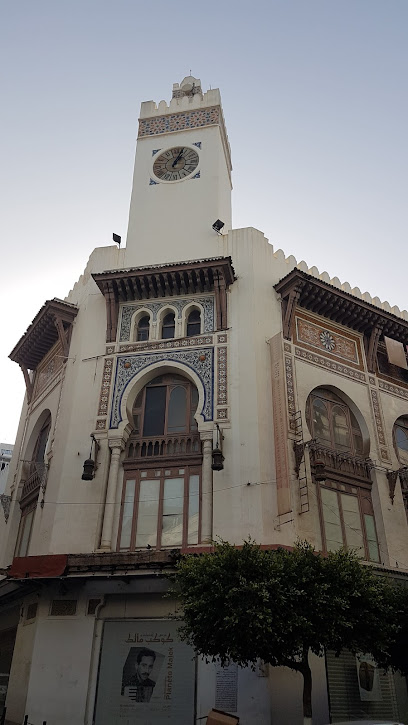
Abdul Latif House
Discover Algerian heritage at Abdul Latif House, a captivating museum showcasing art, history, and architecture in a peaceful setting.
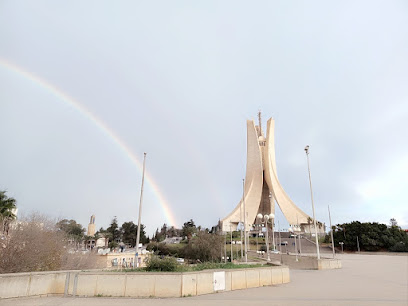
Raïs Palace
Explore Algiers' Palais des Raïs: A journey through Ottoman-era architecture and maritime history in the heart of the Casbah. Discover Algerian heritage and culture.
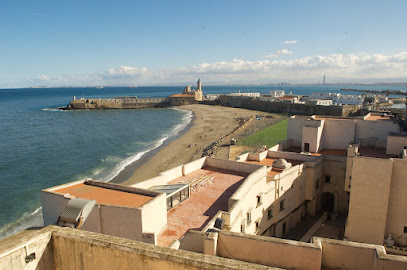
Palace of the Dey
Explore the Palace of the Dey in Algiers, a historic Ottoman-era landmark offering insights into Algeria's rich cultural and political past.
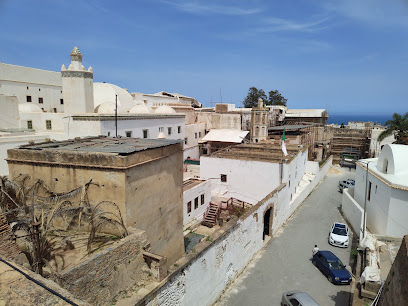
Port Saïd Square
Experience the vibrant heart of Algiers at Port Saïd Square, a historic crossroads where culture, commerce, and community converge.
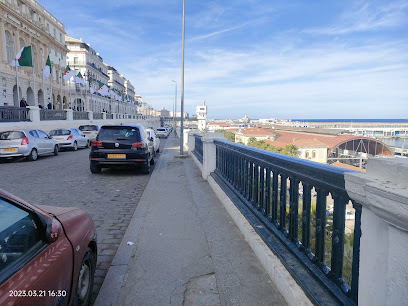
Dar Hassan Pacha
Explore Dar Hassan Pacha in Algiers' Casbah: A historic palace blending Ottoman grandeur with colonial influences, offering a glimpse into Algeria's past.
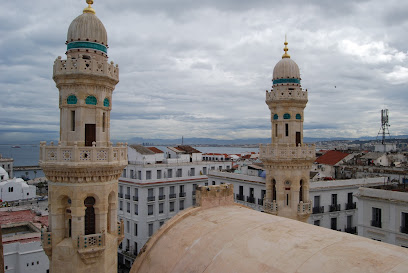
Unmissable attractions to see
Teri Park
Experience thrills and laughter at Teri Park in Chéraga, Algiers, with rides, games, and fun for the whole family!
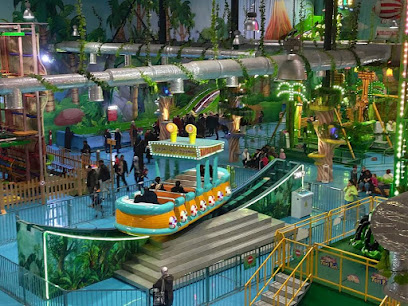
Royal Mausoleum of Mauritania
Explore the Royal Mausoleum of Mauritania, a majestic monument blending Berber, Hellenistic, and Egyptian architectural styles.
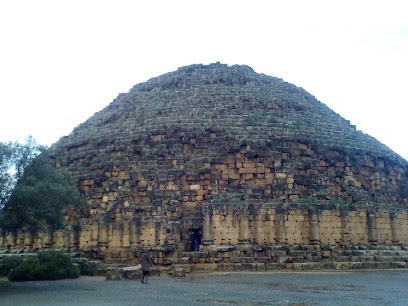
Dream Park
Experience thrilling rides & family fun at Dream Park, Algiers' premier amusement destination. Create unforgettable memories!
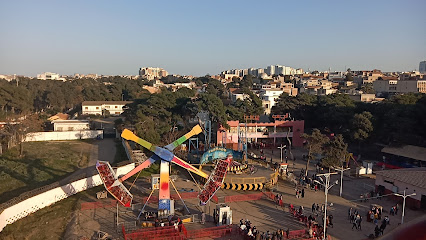
Sacred Heart Cathedral
Discover Algiers' Sacred Heart Cathedral: a stunning blend of faith, history, and architectural brilliance in the heart of Sidi M'Hamed.
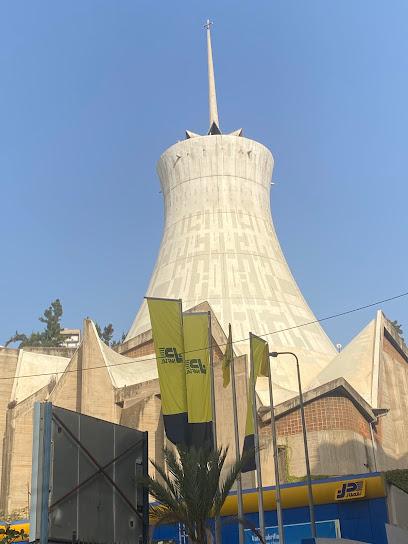
كيدي بارك
Experience thrilling rides, lush gardens, and cultural events at Kidi Park, the perfect family escape in Bordj El Kiffan, Algiers.
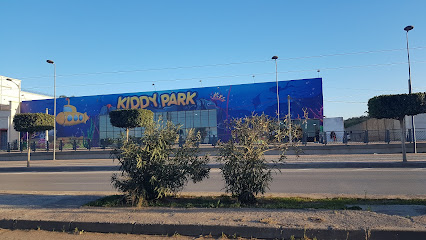
Casbah of Dellys
Explore the Casbah of Dellys: a captivating blend of history, architecture, and Mediterranean charm in Algeria's coastal heart.
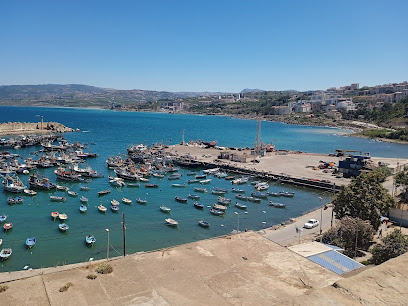
Tifariti - Laperlier Garden
Escape to a serene oasis in the heart of Algiers, with lush greenery, scenic views, and a tranquil atmosphere perfect for relaxation.
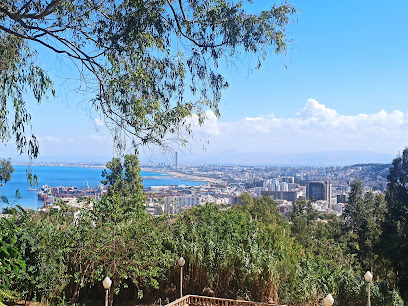
Abdul Latif House
Discover Algeria's rich heritage at Abdul Latif House, a captivating museum showcasing the country's history, art, and culture.
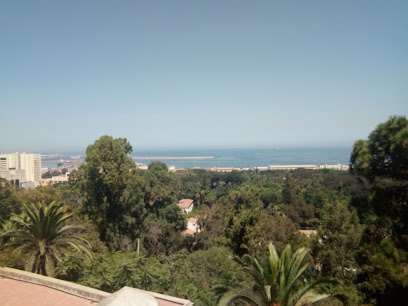
Palace of the Dey
Explore the Palace of the Dey in Algiers, a historic Ottoman-era landmark within the UNESCO-listed Casbah, offering insights into Algeria's rich past.
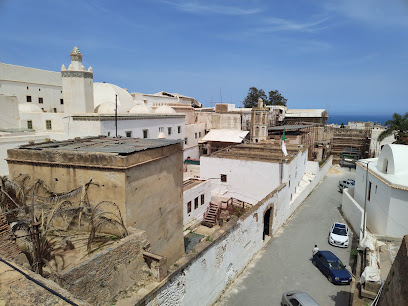
The Ferris wheel manou park
Experience stunning panoramic views of Algiers from the iconic Ferris wheel at Manou Park, a hub of family-friendly activities and vibrant city life.
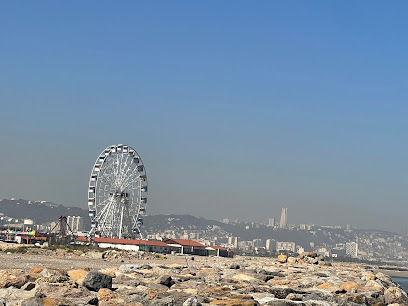
Parc d'attractions
Experience a perfect mix of thrills and relaxation at Parc d'attractions in Hydra, Algiers. Fun for all ages!

Essential places to dine
مطعم ارابيسك الجزائر & Restaurant Arabesque Alger
Savor authentic Syrian flavors at Restaurant Arabesque Alger in Sidi M'Hamed – where every dish tells a story.
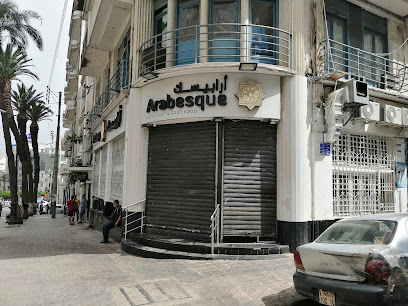
Caracoya
Discover Caracoya: A culinary jewel in Sidi M'Hamed offering authentic Algerian dishes in a warm and inviting setting.
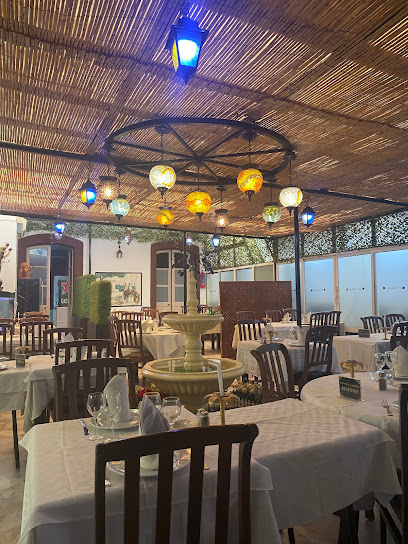
PianoPiano.dz
Experience a unique blend of exquisite cuisine and live piano music at PianoPiano.dz in El Madania—a cultural gem for every tourist.
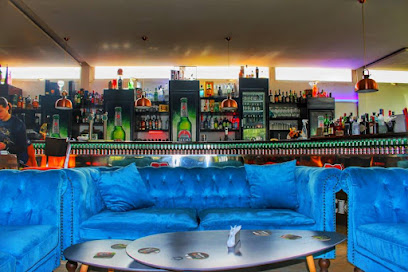
وودي جريل الجزائر العاصمة
Experience authentic Turkish cuisine at Woody Grill in Algiers; indulge in mouthwatering dishes amidst warm hospitality.
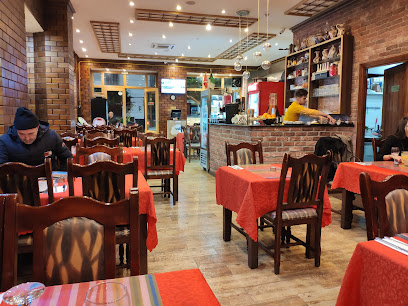
Le Bardo Restaurant مطعم الباردو
Experience the rich flavors of Algeria at Le Bardo Restaurant, where tradition meets modern culinary art in Sidi M'Hamed.
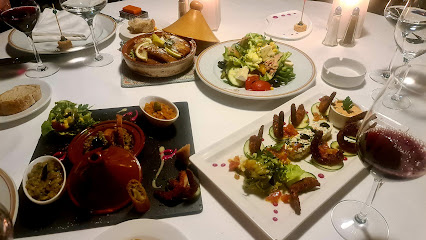
Garden Restaurant Al Boustane
Experience authentic Algerian cuisine with breathtaking views at Garden Restaurant Al Boustane in El Madania.
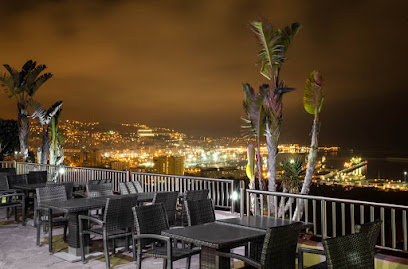
Chic Chic Restaurant
Experience a gastronomic journey at Chic Chic Restaurant in Bir Mourad Raïs - where traditional Algerian flavors meet modern culinary excellence.
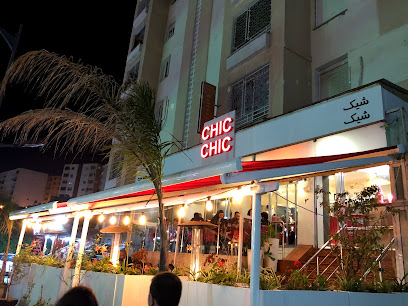
ماهاراجا
Experience authentic Indian cuisine at Maharaja in Mohammadia—where rich flavors meet warm hospitality.
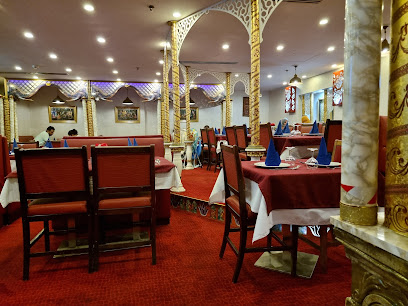
Sapori
Experience authentic Algerian cuisine at Sapori in Casbah – where tradition meets taste in every delightful dish.
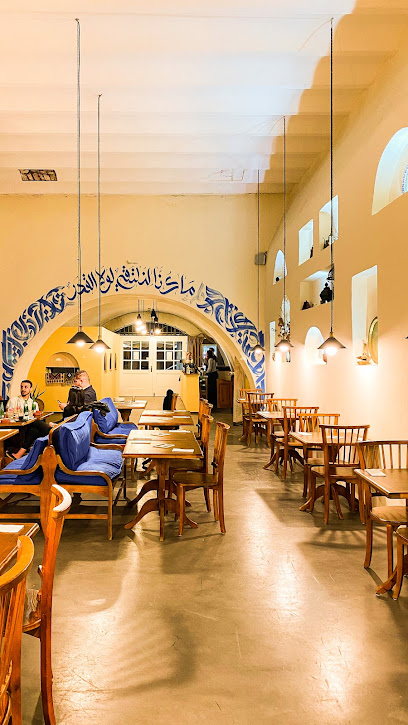
Le Ciel d’Alger By AZ Hôtels Kouba
Experience exquisite Algerian cuisine and breathtaking views at Le Ciel d’Alger By AZ Hôtels in Kouba.
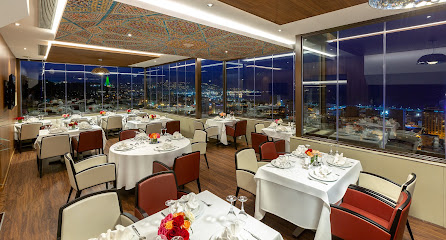
Restaurant El Djenina مطعم الجنينة
Experience authentic Algerian cuisine at Restaurant El Djenina - a culinary journey in Sidi M'Hamed.
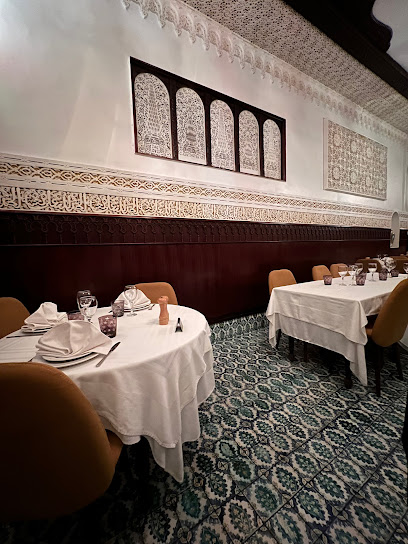
Le Potager
Experience the authentic taste of Algeria at Le Potager, where fresh ingredients meet warm hospitality in Ben Aknoun.
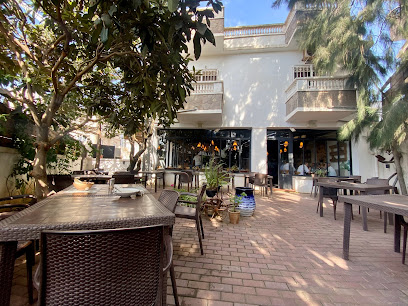
Restaurant Cazador
Discover the exquisite flavors of Mediterranean seafood at Restaurant Cazador in Bordj El Kiffan – where freshness meets tradition.
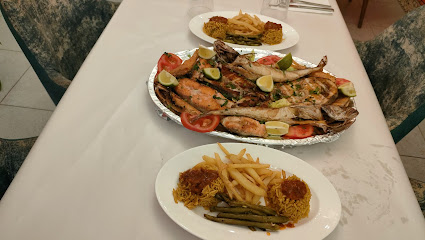
La baraque Cheese Burger
Discover gourmet burgers at La Baraque Cheese Burger in Bab Ezzouar – where every bite is a flavorful adventure.
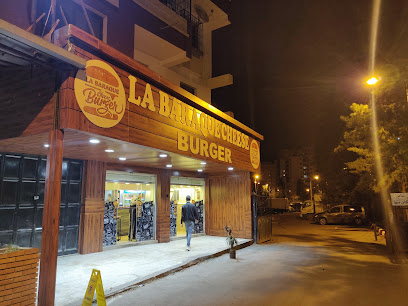
Restaurant Roofnest
Savor exquisite Algerian and international cuisine at Restaurant Roofnest, where delicious food meets stunning views in Dar El Beïda.
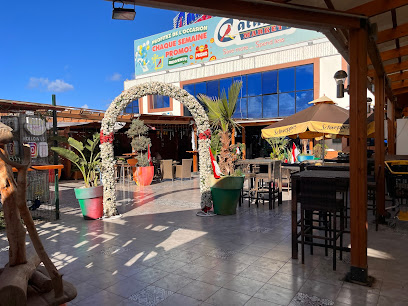
Markets, malls and hidden boutiques
Bab Ezzouar Commercial Center
Discover shopping, dining, and entertainment at the Bab Ezzouar Commercial Center, Algeria's premier shopping destination.
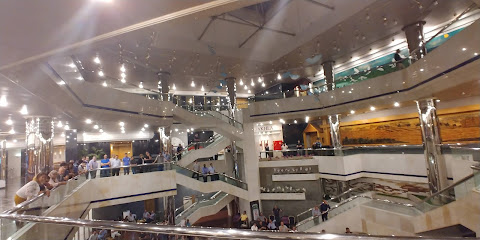
Garden City Mall
Experience the vibrant shopping and entertainment hub of Garden City Mall in Algeria, where fashion meets culinary delight in a lively atmosphere.
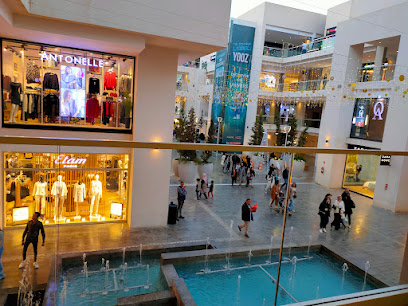
City Center Mall
Discover a vibrant shopping experience at City Center Mall in Mohammadia, featuring diverse stores, delicious dining, and lively entertainment options.
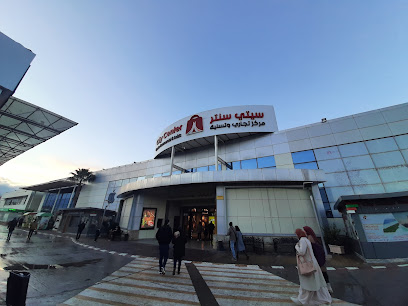
Le Printemps Mohammadia
Discover the vibrant fashion scene at Le Printemps Mohammadia, the premier clothing store in Algeria, blending modern styles with traditional influences.
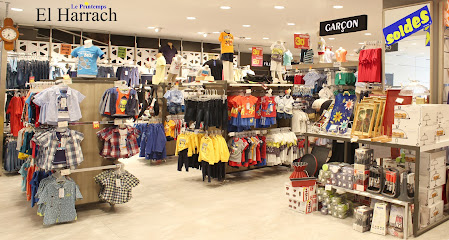
Carrefour
Explore Carrefour in Algiers for a diverse shopping experience that combines local flavors with global brands, all in one vibrant location.
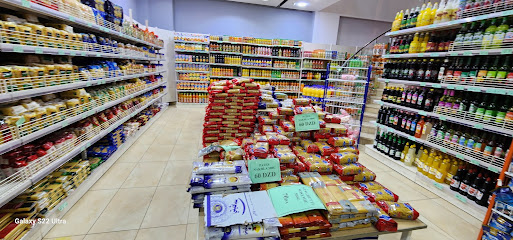
Al Hamiz
Explore Al Hamiz, the ultimate hypermarket in Dar El Beïda, offering a vast selection of local and international products for every traveler.
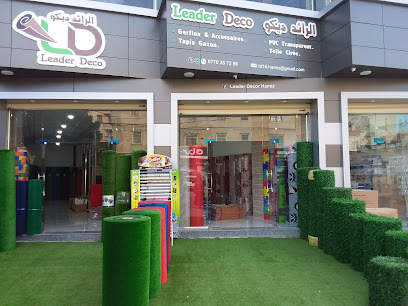
AMADHAL Store
Explore AMADHAL Store in Kouba for unique handicrafts and art pieces that capture the essence of Algerian culture.
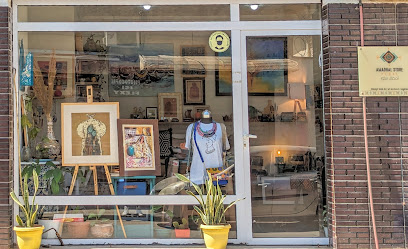
Centre commercial Le Marignan
Explore the vibrant Centre commercial Le Marignan in Annaba, where shopping meets local culture amidst diverse dining options.
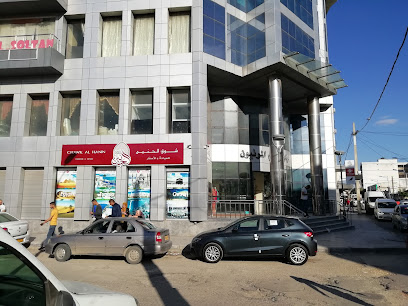
Algerie Outlet Gallerie
Explore Algerie Outlet Gallerie in El Biar for an exceptional shopping experience filled with trendy clothing and friendly service in the heart of Algiers.
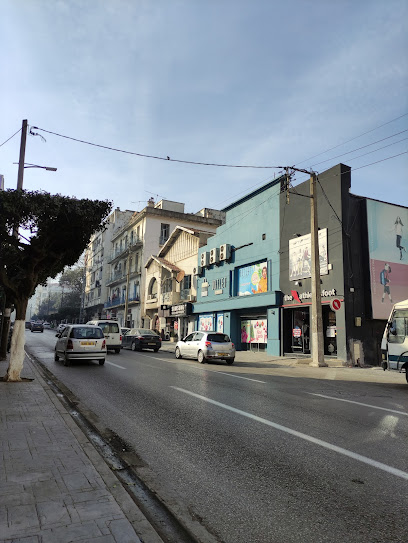
Le grand top shop
Experience the vibrant culture of Ouled Yaïch at Le Grand Top Shop, where unique local goods and friendly service await every visitor.
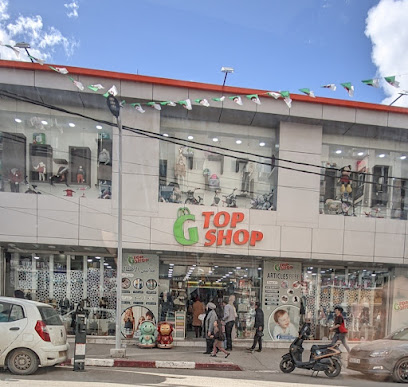
ALGERIE STORE
Explore the rich culture of Algeria at ALGERIE STORE, your gateway to unique handicrafts and authentic souvenirs in Birkhadem.

Algeria Moda
Explore Algeria Moda in Sidi M'Hamed for contemporary fashion infused with local culture, perfect for every style enthusiast.
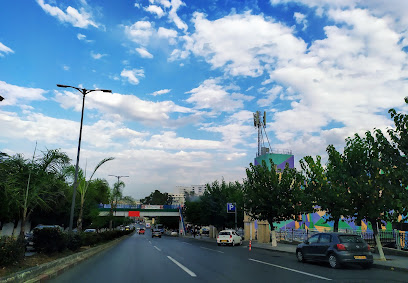
Boutique British Béjaia
Explore Boutique British Béjaia, a stylish clothing store blending British fashion with local culture in the heart of Béjaïa.
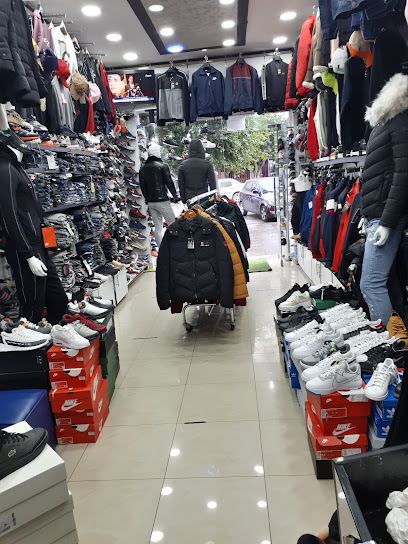
Albay store محل الباي للأقمصة
Discover the vibrant Albay Store in Bab El Oued, a market full of local culture, handmade crafts, and delicious Algerian treats.
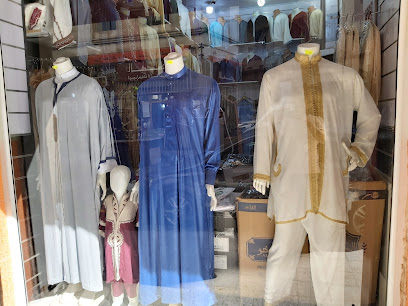
Luxury shopping Co.
Explore Luxury Shopping Co. in Kouba for exclusive fashion and elegant apparel that redefines your style experience.

Essential bars & hidden hideouts
PianoPiano.dz
Experience the best of El Madania at PianoPiano.dz, where culinary excellence meets live music in a vibrant cultural setting.
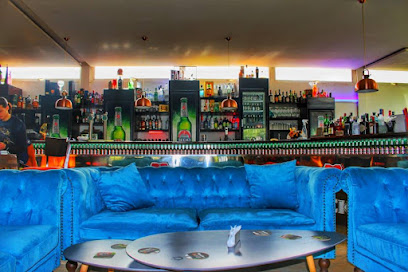
Cosmopolitain
Discover the lively atmosphere and delicious tapas at Cosmopolitain, the perfect bar for an unforgettable night in El Madania, Algeria.
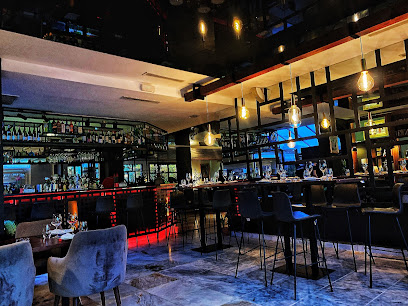
Club gentleman
Discover the vibrant charm of Club Gentleman, a premier bar and grill in Bordj El Kiffan, where exquisite cuisine meets Algerian hospitality.
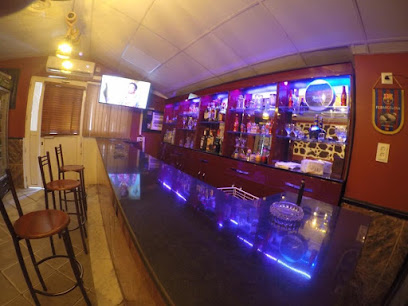
L’ARQ RESTAURANT & LOUNGE
Experience the perfect blend of local flavors and international cuisine at L'ARQ Restaurant & Lounge in Hydra.
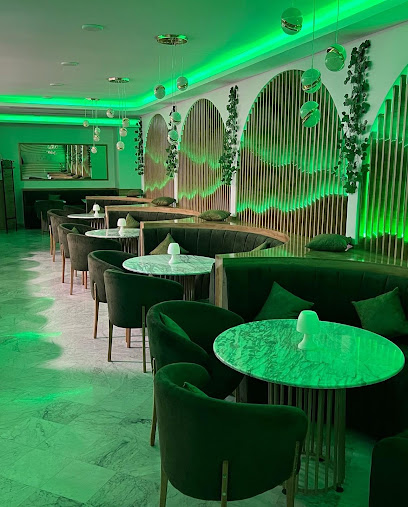
BigBen Restaurant
Discover the culinary delights of BigBen Restaurant in Bir Mourad Raïs, where diverse flavors and a lively atmosphere create an unforgettable dining experience.
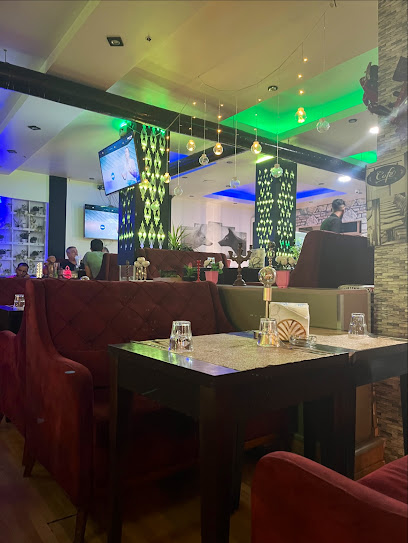
Les Arcades Sixteen 16
Discover the pulsating nightlife at Les Arcades Sixteen 16, a top night club and lounge in El Madania that offers a vibrant atmosphere and delightful drinks.
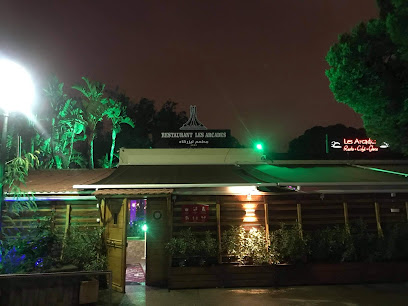
DREAM CREAM
Discover the cozy charm of Dream Cream, the ultimate lounge and creperie in Dar El Beïda, serving delectable crepes and a warm atmosphere.
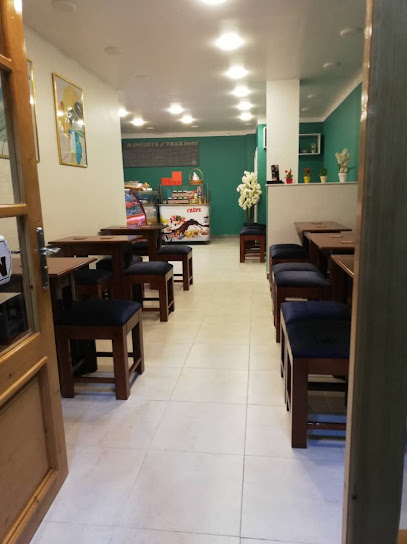
Bar El Dey
Experience the vibrant atmosphere of Bar El Dey in El Mouradia, where locals and visitors come together to enjoy drinks and socialize in a lively setting.

Alger bar
Discover the heartbeat of El Djazair at Alger Bar, where live music and vibrant culture create an unforgettable nightlife experience.
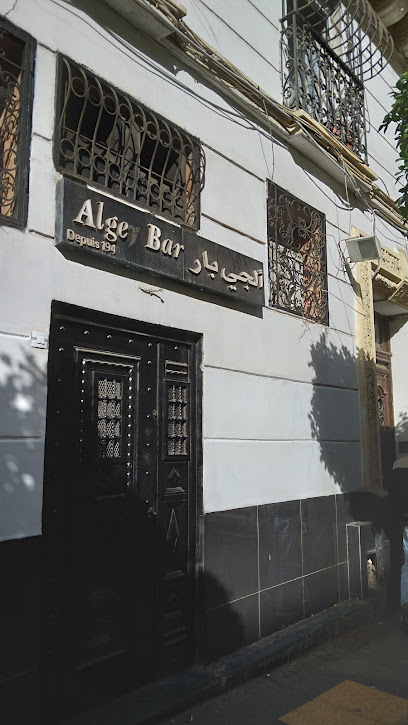
Brasserie La Toison D'or
Experience the vibrant atmosphere of Brasserie La Toison D'or, where Algerian flavors and hospitality come together in the heart of El Djazair.
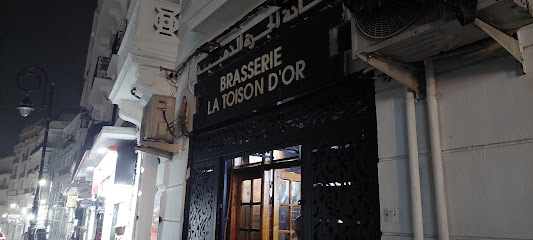
el manzel restaurant
Discover the authentic taste of Algeria at El Manzel Restaurant, a grill paradise in Ben Aknoun with a cozy ambiance and delightful dishes.

أخصائي كبدة
Discover the authentic flavors of Algeria at أخصائي كبدة, a vibrant bar in El Djazair specializing in delicious liver dishes.

كمال ليوندرو
Discover the vibrant nightlife at كمال ليوندرو, a chic bar in Oued Koriche, offering a delightful blend of local and international beverages.

restaurant
Experience the vibrant nightlife of Algiers at this local bar, where culture meets relaxation in a cozy atmosphere filled with laughter and music.

Local Phrases about Algiers Bay
-
- Helloمرحبا
[marhaba] - Goodbyeوداعا
[wada'an] - Yesنعم
[naam] - Noلا
[la] - Please/You're welcomeمن فضلك/على الرحب والسعة
[min fadlik/ala ar-rahb was-sa'ah] - Thank youشكرا
[shukran] - Excuse me/Sorryعذرا
[aadhira] - How are you?كيف حالك؟
[kayfa haluk?] - Fine. And you?بخير. وأنت؟
[bikhayr. wa ant?] - Do you speak English?هل تتحدث الإنجليزية؟
[hal tatahadath al-inglizia?] - I don't understandأنا لا أفهم
[ana la afham]
- Helloمرحبا
-
- I'd like to see the menu, pleaseأريد أن أرى القائمة، من فضلك
[uriid an araa al-qa'imah, min fadlik] - I don't eat meatأنا لا آكل اللحوم
[ana la aakul al-lahm] - Cheers!في صحتك!
[fi sahtak!] - I would like to pay, pleaseأود أن أدفع، من فضلك
[awad an adfa'a, min fadlik]
- I'd like to see the menu, pleaseأريد أن أرى القائمة، من فضلك
-
- Help!مساعدة!
[musa'adah!] - Go away!انصرف!
[ansarif!] - Call the Police!اتصل بالشرطة!
[ittasil bialshurtah!] - Call a doctor!اتصل بطبيب!
[ittasil batabib!] - I'm lostلقد ضللت
[laqad dalalt] - I'm illأنا مريض
[ana mariid]
- Help!مساعدة!
-
- I'd like to buy...أريد شراء...
[uriid shira...] - I'm just lookingأنا فقط أتطلع
[ana faqat atatala] - How much is it?كم سعره؟
[kam sa'ruh?] - That's too expensiveهذا غالي جدا
[hatha ghali jiddan] - Can you lower the price?هل يمكنك خفض السعر؟
[hal yumkinuk khafd al-sa'ur?]
- I'd like to buy...أريد شراء...
-
- What time is it?كم الوقت؟
[kam al-waqt?] - It's one o'clockالساعة الواحدة
[al-sa'ah al-wahidah] - Half past (10)العاشرة والنصف
[al-ashirah wan-nisf] - Morningصباح
[sabah] - Afternoonبعد الظهر
[ba'd az-zuhr] - Eveningمساء
[masa'] - Yesterdayأمس
[ams] - Todayاليوم
[al-yawm] - Tomorrowغدا
[ghadan] - 1واحد
[wahid] - 2اثنان
[ithnan] - 3ثلاثة
[thalatha] - 4أربعة
[arba'a] - 5خمسة
[khamsa] - 6ستة
[sitta] - 7سبعة
[sab'a] - 8ثمانية
[thamania] - 9تسعة
[tisa'a] - 10عشرة
[ashara]
- What time is it?كم الوقت؟
-
- Where's a/the...?أين ...؟
[ayna ...?] - What's the address?ما هو العنوان؟
[ma huwa al-anaan?] - Can you show me (on the map)?هل يمكنك أن تريني (على الخريطة)؟
[hal yumkinuk an tarini (ala al-kharitah)?] - When's the next (bus)?متى الحافلة القادمة؟
[mata al-hafilah al-qadimah?] - A ticket (to ....)تذكرة (إلى ...)
[tadhkirah (ila ...)]
- Where's a/the...?أين ...؟
History of Algiers Bay
-
Algiers Bay's history can be traced back to the Phoenician era, around the 3rd century BCE. The area served as a significant trading post for the Phoenicians, who established a settlement known as Ikosim. This early presence laid the groundwork for the city's rich maritime culture.
-
In 146 BCE, Algiers came under Roman control after the fall of Carthage. The Romans renamed the settlement 'Icosium' and developed it into a bustling port city. Remnants of Roman architecture, including the ruins of baths and mosaics, still stand as testament to this period.
-
Following the decline of the Roman Empire, the Byzantines took control of Algiers Bay in the 6th century. Their rule brought fortifications and new architectural styles to the area, some of which can still be observed in the old town, known as the Casbah.
-
The 16th century marked the beginning of Ottoman rule in Algiers Bay. The city became a key part of the Ottoman Empire, serving as a major hub for trade and military operations. The Ottomans fortified the city and constructed numerous mosques and palaces, many of which still stand today.
-
In 1830, Algiers Bay fell under French control, marking the beginning of a 132-year period of colonization. The French influence is evident in the European-style boulevards, buildings, and urban planning that transformed the cityscape. Notable structures from this era include the Cathedral of Notre Dame d'Afrique and the modernist architecture in the downtown area.
-
The mid-20th century saw Algiers Bay at the heart of Algeria's struggle for independence from French rule. The Battle of Algiers (1956-1957) is a significant historical event, characterized by intense urban guerrilla warfare and a brutal crackdown by French forces. The city's Casbah quarter played a crucial role as a stronghold for the National Liberation Front (FLN).
-
After gaining independence in 1962, Algiers Bay emerged as the capital city of the newly formed People's Democratic Republic of Algeria. The post-independence period saw substantial development and modernization efforts, although the city also faced challenges such as political unrest and economic fluctuation.
-
Algiers Bay is a melting pot of cultures, with influences from its Phoenician, Roman, Byzantine, Ottoman, and French periods. The Casbah of Algiers, a UNESCO World Heritage site, epitomizes this blend, featuring a labyrinth of narrow streets, historic mosques, and traditional houses. The bay's vibrant cultural scene includes music, arts, and cuisine that reflect its diverse history.
Algiers Bay Essentials
-
Algiers Bay is accessible via the Houari Boumediene Airport (Algiers International Airport), which is the primary gateway for international and domestic flights. The airport is located about 17 kilometers southeast of central Algiers. From the airport, you can take a taxi, a bus, or a rental car to reach Algiers Bay. Taxis are available just outside the arrival terminal and offer a convenient, though sometimes expensive, option. Public buses are a more economical choice and run regularly between the airport and the city center.
-
Within Algiers Bay, you can explore the city using various forms of transportation. The public bus network is extensive and affordable, with routes covering most areas. The Algiers Metro is another efficient way to navigate the city, with lines connecting key districts. Taxis are plentiful and can be hailed on the street or booked through apps. Car rentals are available, but driving can be challenging due to traffic congestion and local driving habits. For a more scenic experience, consider taking a ferry ride within the bay area.
-
The official currency in Algeria is the Algerian Dinar (DZD). Credit cards are accepted in major hotels, restaurants, and shops, but it is advisable to carry cash, especially for smaller purchases and in less touristy areas. ATMs are widely available in Algiers, including at the airport, but ensure you have enough cash for your trip as card payment facilities can be unpredictable.
-
Algiers Bay is generally a safe destination, but it's important to stay vigilant. Avoid walking alone at night in isolated areas and keep an eye on your belongings in crowded places. Areas such as the Casbah have higher crime rates, including petty theft and pickpocketing, so exercise extra caution when visiting. It's recommended to stay within well-populated and well-lit areas, especially after dark.
-
In case of an emergency, dial 14 for police assistance, 17 for the fire department, and 1548 for medical emergencies. Major hospitals and clinics in Algiers offer emergency services. It's advisable to have travel insurance that covers medical emergencies. For minor health issues, pharmacies are available throughout the city where you can purchase over-the-counter medications.
-
Fashion: Do dress conservatively to respect local customs, especially when visiting religious sites. Avoid wearing revealing clothing. Religion: Do respect Islamic customs, such as not eating in public during Ramadan. Public Transport: Do be courteous and give up your seat to elderly passengers. Don't eat or drink on public transport. Greetings: Do greet people with a handshake; men should wait for women to extend their hand first. Eating & Drinking: Do try local dishes and accept food offerings graciously. Don't refuse hospitality, as it is considered impolite.
-
To experience Algiers Bay like a local, visit the bustling markets such as Souk El Had and Souk El Fellah for fresh produce and traditional crafts. Engage with locals, as they are generally friendly and willing to share their culture. Don’t miss the opportunity to take a leisurely stroll along the Corniche for stunning views of the Mediterranean Sea. For a unique experience, take a traditional boat ride within the bay area, offering a different perspective of the city.
Trending Landmarks in Algiers Bay
-
Martyrs Memorial
-
Botanical Garden Hamma
-
Martyrs' Square
-
Church of Notre Dame of Africa
-
Riad Al Fath
-
Sacred Heart Cathedral
-
The Great Mosque
-
National Museum of Arts and Popular Traditions
-
Dar Mustapha Pacha
-
Museum of Modern Art of Algiers
-
Abdul Latif House
-
Raïs Palace
-
Palace of the Dey
-
Port Saïd Square
-
Dar Hassan Pacha
Nearby Cities to Algiers Bay
-
Things To Do in Tizi Ouzou
-
Things To Do in Bejaia
-
Things To Do in Setif
-
Things To Do in Palma de Mallorca
-
Things To Do in Constantine
-
Things To Do in Oran
-
Things To Do in Alicante
-
Things To Do in Murcia
-
Things To Do in Annaba
-
Things To Do in Valencia
-
Things To Do in Tlemcen
-
Things To Do in Almeria
-
Things To Do in Tarragona
-
Things To Do in Oujda
-
Things To Do in Barcelona










